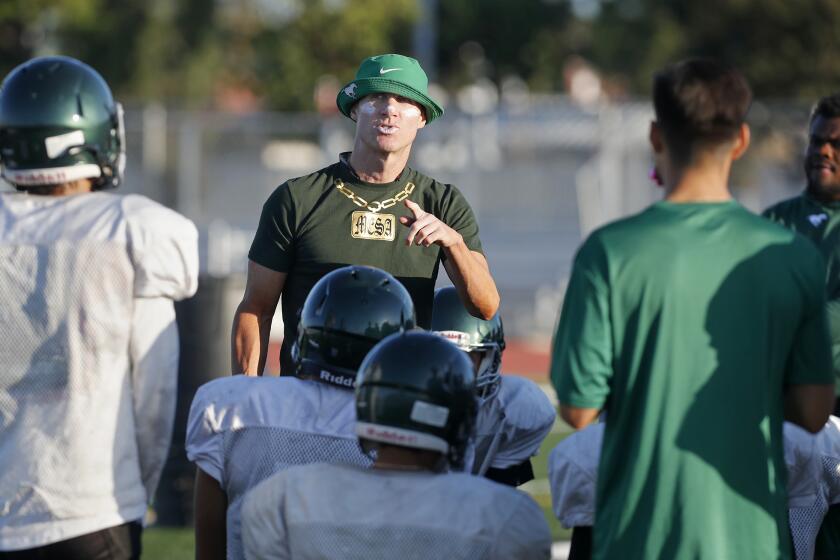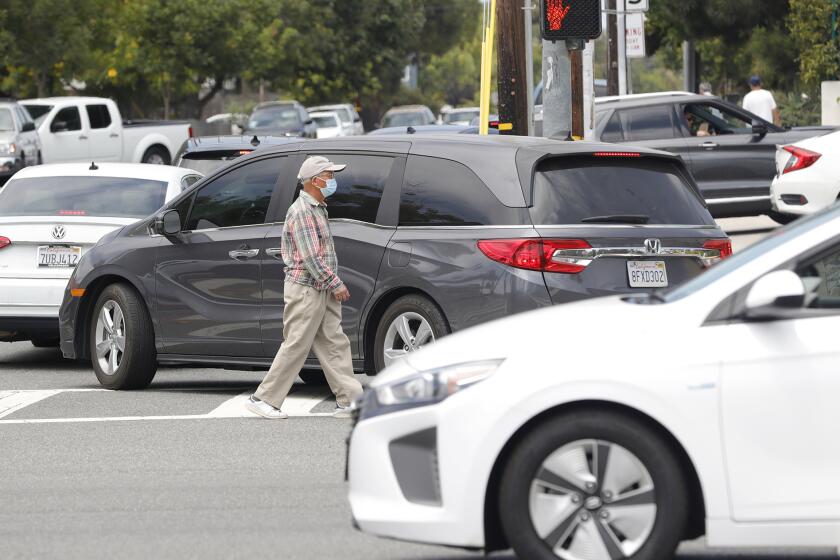Installations on Costa Mesa’s West 19th Street have drivers seeing circles — if only for a week
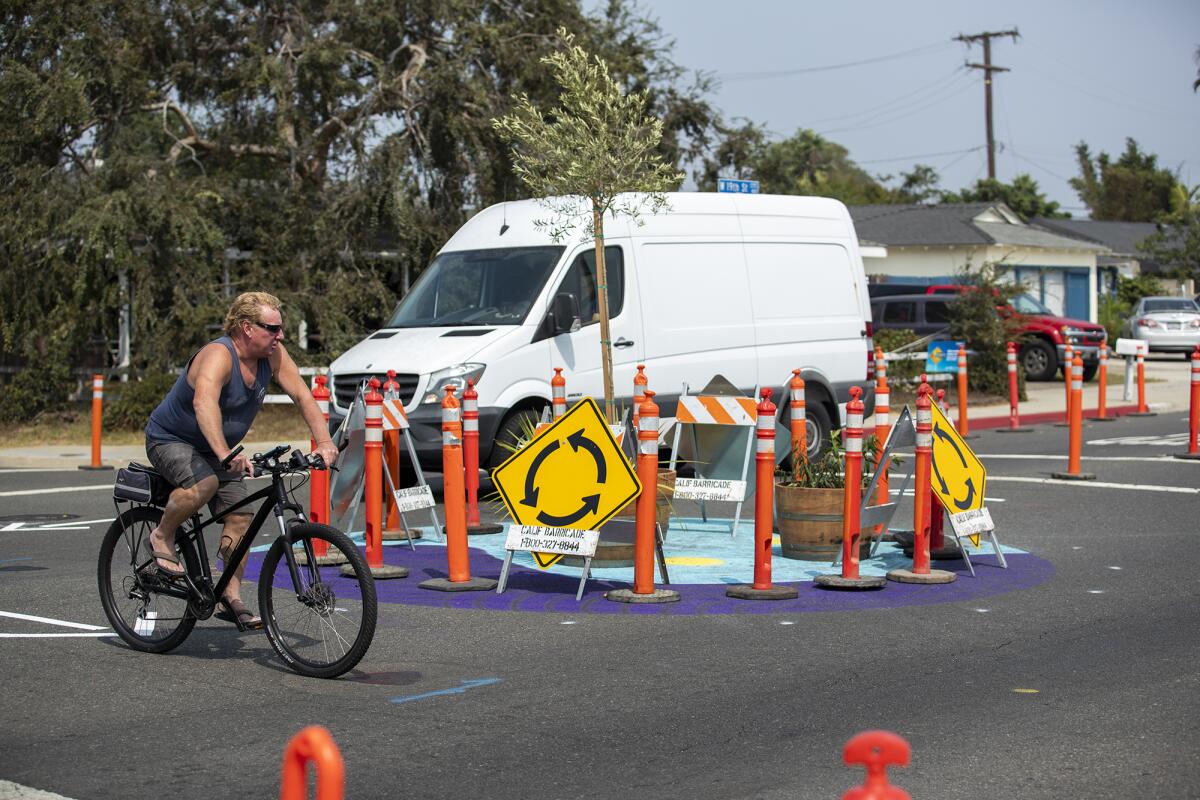
Some new temporary traffic installations on and around Costa Mesa’s busy West 19th Street are forcing drivers to slow down and become more aware of their surroundings as they traverse key intersections in an entirely new manner — via roundabouts.
And, although the new traffic circles will be in place only until Friday as part of a pilot program being conducted by a local nonprofit, the reconfigurations are inspiring reactions from Costa Mesa drivers in favor of, and opposed to, the recent change in flow.
Crews began the work Friday, strategically placing patterns of cones and traffic dividers at the intersections where 19th Street meets Monrovia Avenue and, less than half a mile away, its juncture with Wallace Avenue.
Working in consultation with the city, the nonprofit Costa Mesa Alliance for Better Streets designed and built the temporary traffic calming measures as part of a “Reimagine 19th” project. They will collect information and survey data they hope will inform future conversations about the street’s design and walkability. An online survey is at cmabs.org/survey.
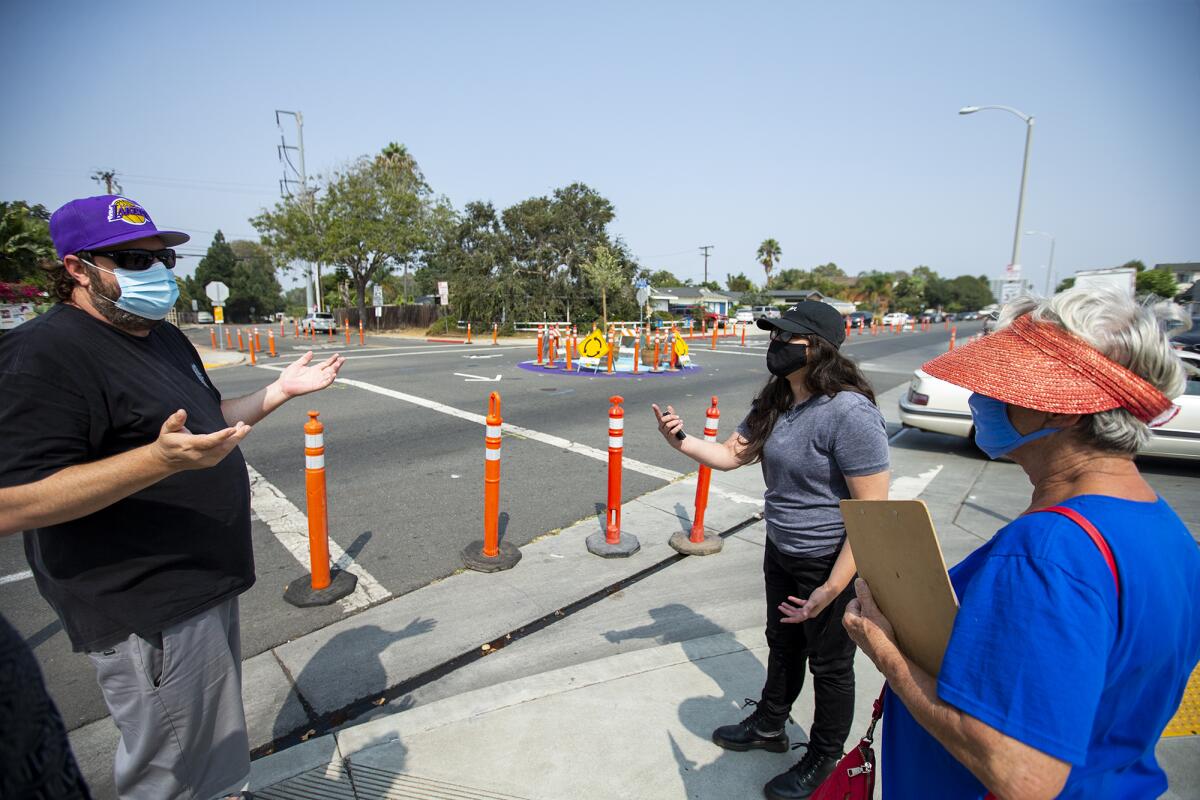
Alliance President Russell Toler says the pilot project is an alternative to traditional street installations, which can take years to design and build and cost cities millions without offering any guarantee of real-world effectiveness.
“That’s the beauty of this temporary, iterative process — you test it, and if it doesn’t work, you can tweak it,” he said.
The wife of Costa Mesa High School football coach Jimmy Nolan, Taran, and their children, Daisy and Jimmy, are still hospitalized after surviving a crash that killed two people in South Carolina last week.
Toler acknowledged not everyone is a fan of the traffic circles. Alliance members have gotten feedback from less-than-happy Costa Mesans, some of whom noted the roundabouts have stop signs instead of yield signs. That was an issue on which city officials would not budge, he clarified.
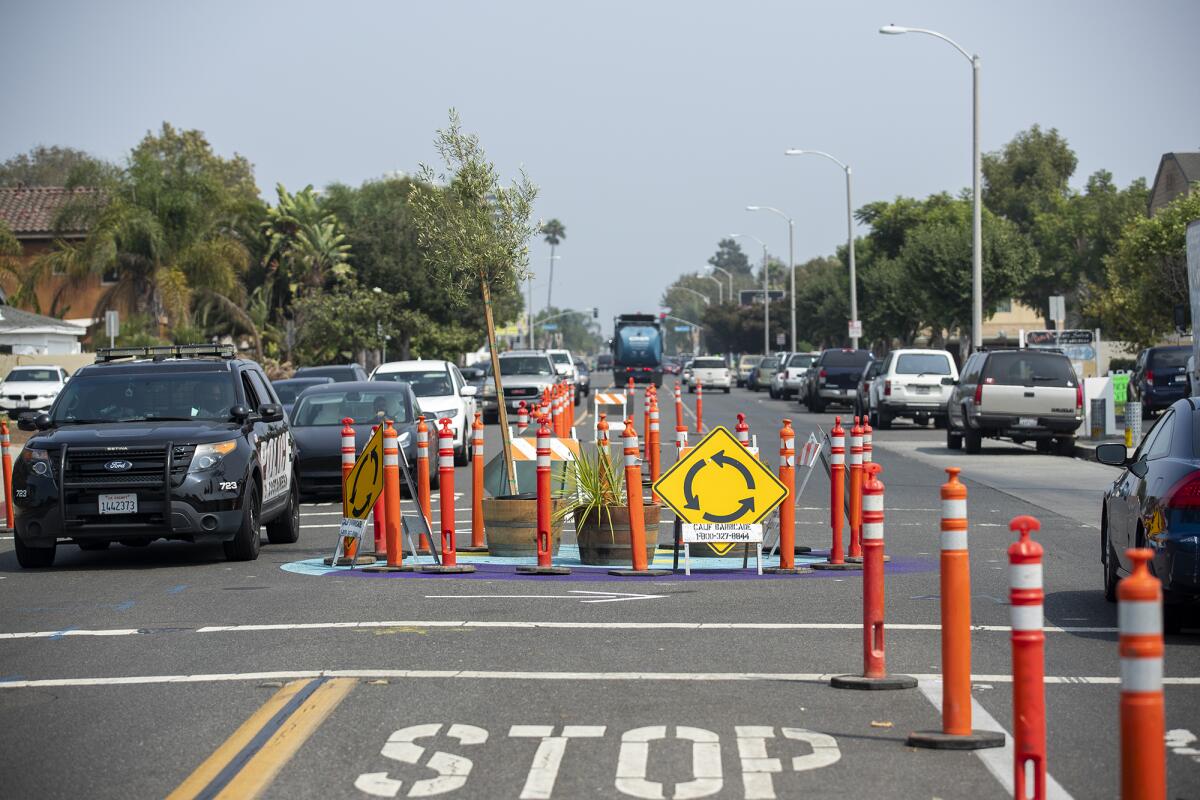
Some locals have taken to social media to support the traffic experiment, while others decry it as a confusion and waste of city funds.
In truth, the effort is funded with a $9,600 mini-grant from the Southern California Assn. of Governments’ “Go Human” campaign, which aims to reduce collision injuries and encourage more people to walk and ride bikes.
The Alliance held a community workshop in August in which participants were asked to identify what challenges pedestrians and bicyclists on 19th Street encounter and to brainstorm solutions.
When asked to “Reimagine 19th” Street in westside Costa Mesa, residents had many suggestions. A $9,600 grant secured by the Costa Mesa Alliance for Better Streets could make those ideas a reality.
The nonprofit also circulated a survey that generated hundreds of responses. In addition to bike lanes and crosswalk improvements, citizens roundly supported traffic circles, which cause drivers to go more slowly and pay attention to surrounding traffic.
Costa Mesa City Councilwoman Arlis Reynolds, who represents a portion of the city’s west side in District 5, participated in the workshop and the installation Friday. She said West 19th Street is known for higher numbers of walkers and bicyclists. It also has a reputation for collisions, injuries and even fatalities.
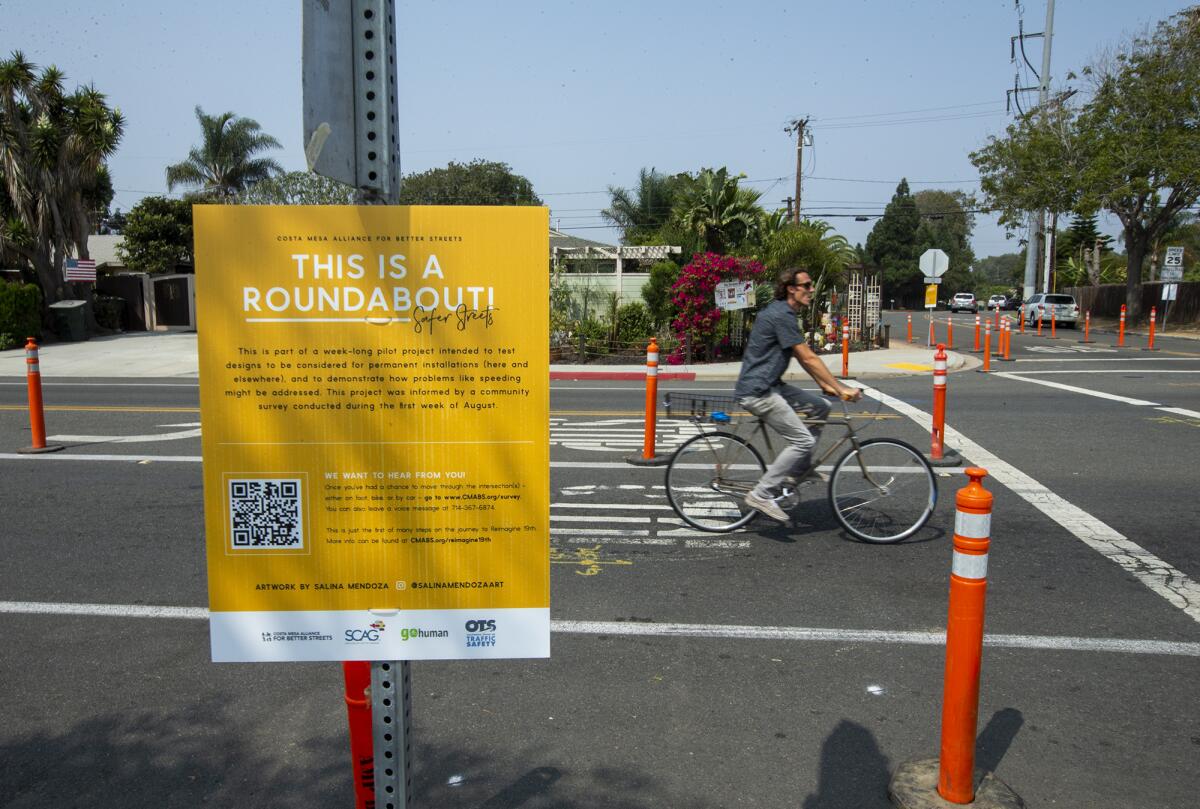
The temporary roundabouts — along with a third installation of narrowed lanes on Wallace Avenue at Center Street — offer transportation advocates and city leaders a valuable testing ground.
“This is a really new approach to street design,” Reynolds said. “It’s a low-cost way to test concepts by getting off the drawing board and out into the streets.”
In addition to cones and barriers demarcating new traffic lanes, organizers placed planter boxes inside the circles and commissioned Costa Mesa artist Salina Mendoza to paint chalk spray abstract murals directly on the asphalt.
Mendoza said the traffic circle murals help introduce people to the installations, while bringing some color to an often neglected part of town.
“Art really does make it memorable, and it eases that shock effect,” Mendoza said of the murals. “I think the art also adds hope. That’s important, especially for people on the west side — they don’t get a lot of love.”
Like Mendoza’s vibrant chalk paint, the cones and planter boxes will have disappeared by Friday, leaving Alliance members to analyze the data they’ve collected and continue conversations about what worked, what didn’t and how to move forward.
“On Friday morning, it’s going to be like it was all a dream,” Toler said. “We hope people miss it, though. That’s kind of the idea.”
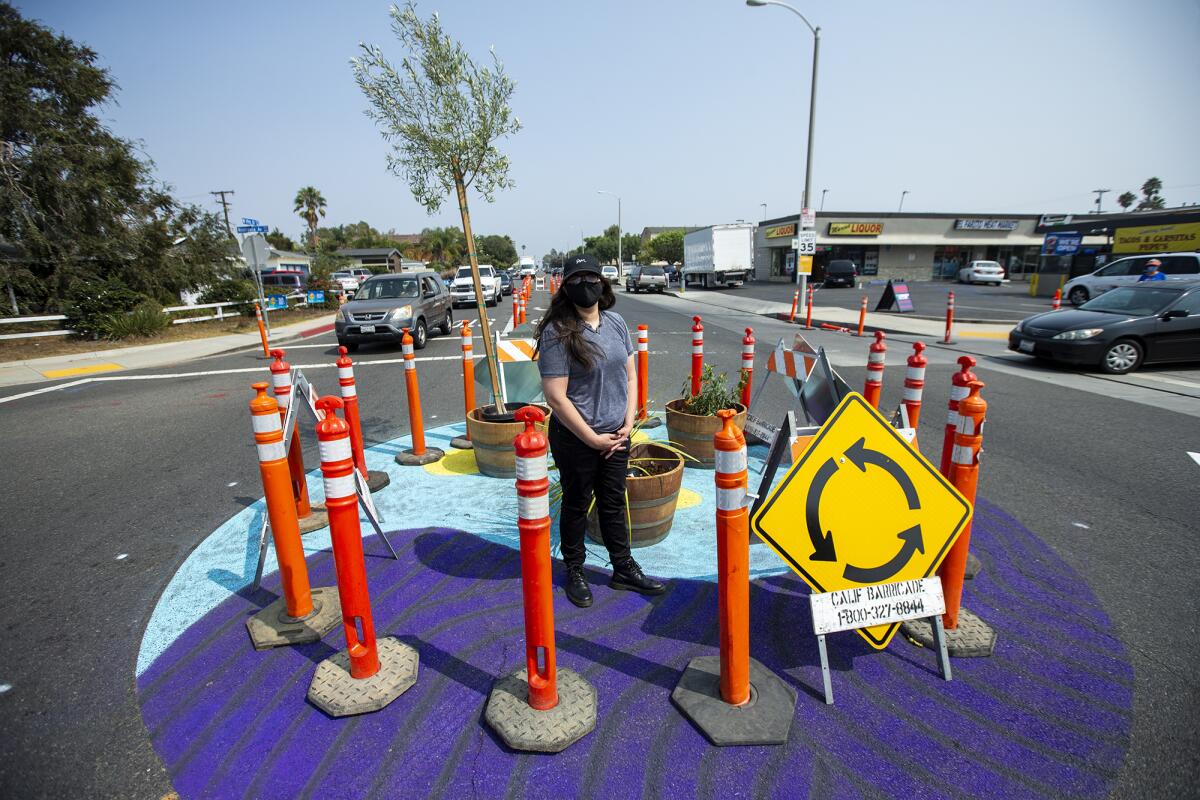
All the latest on Orange County from Orange County.
Get our free TimesOC newsletter.
You may occasionally receive promotional content from the Daily Pilot.
